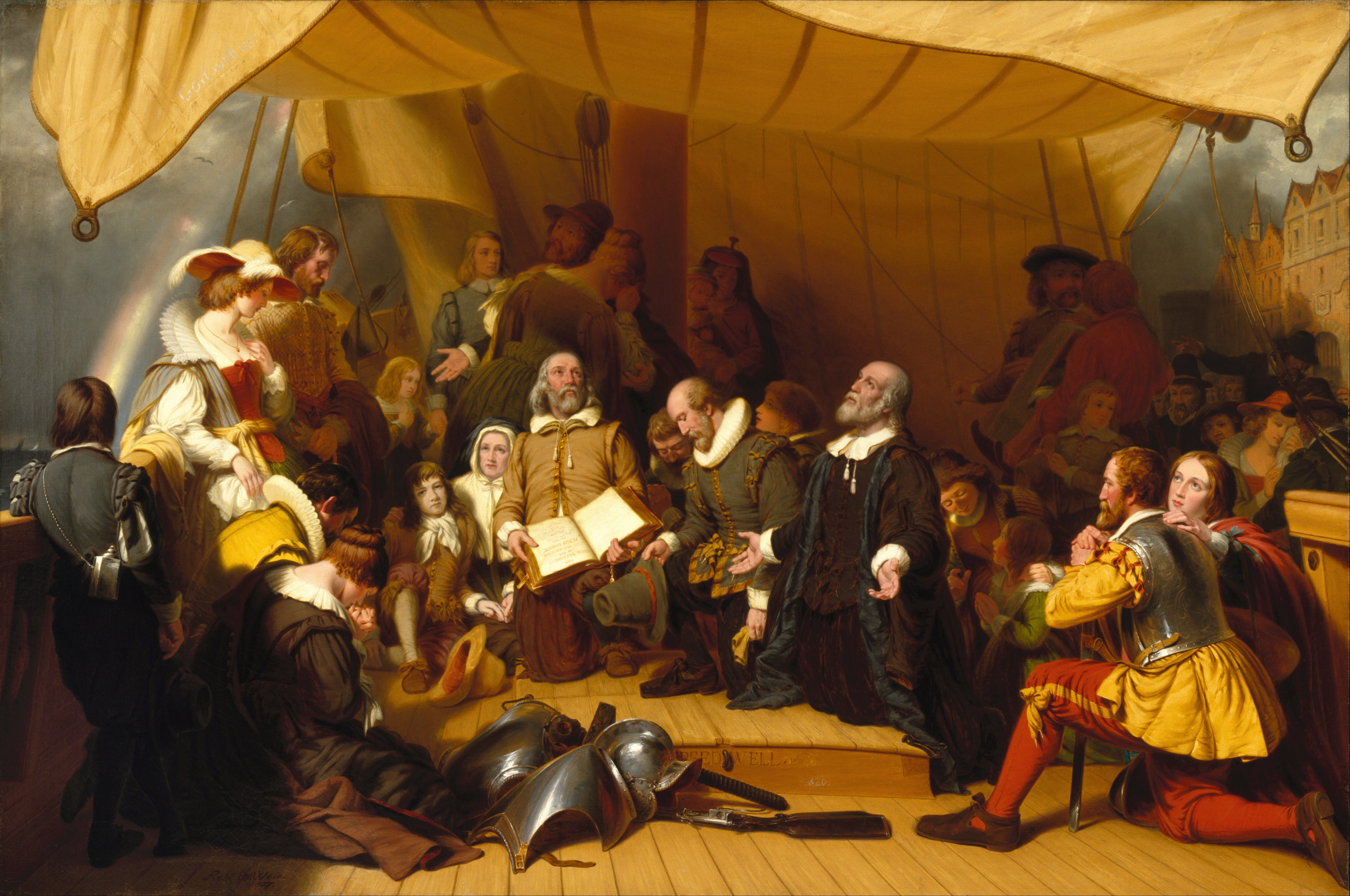
Pilgrims (Plymouth Colony)
The Pilgrims, also known as the Pilgrim Fathers, were the English settlers who traveled to North America on Mayflower and established the Plymouth Colony in Plymouth, Massachusetts (John Smith had named this territory New Plymouth in 1620, sharing the name of the Pilgrims' final departure port of Plymouth, Devon). The Pilgrims' leadership came from the religious congregations of Brownists, or Separatists, who had fled religious persecution in England for the tolerance of 17th-century Holland in the Netherlands.
This article is about the English settlers of New England. For people as pilgrims, see Pilgrim. For other uses, see Pilgrim (disambiguation).They held many of the same Calvinist religious beliefs as Puritans, but unlike Puritans (who wanted a purified established church), Pilgrims maintained that their congregations should separate from the English state church, which led to them being labeled Separatists. After several years living in exile in Holland, they determined to establish a new settlement in the New World and arranged with investors to fund them. They established Plymouth Colony in 1620, where they erected Congregationalist churches.[1] The Puritan later colonial establishment of Massachusetts Bay eventually became more powerful in the area, nonetheless the Pilgrims' story became a central theme in the history and culture of the United States.[2]
Etymology[edit]
Bradford's history[edit]
The first use of the word pilgrims for the Mayflower passengers appeared in William Bradford's 1651 Of Plymouth Plantation. In recounting his group's July 1620 departure from Leiden, he used the imagery of Hebrews 11 (Hebrews 11:13–16) about Old Testament "strangers and pilgrims" who had the opportunity to return to their old country but instead longed for a better, heavenly country.